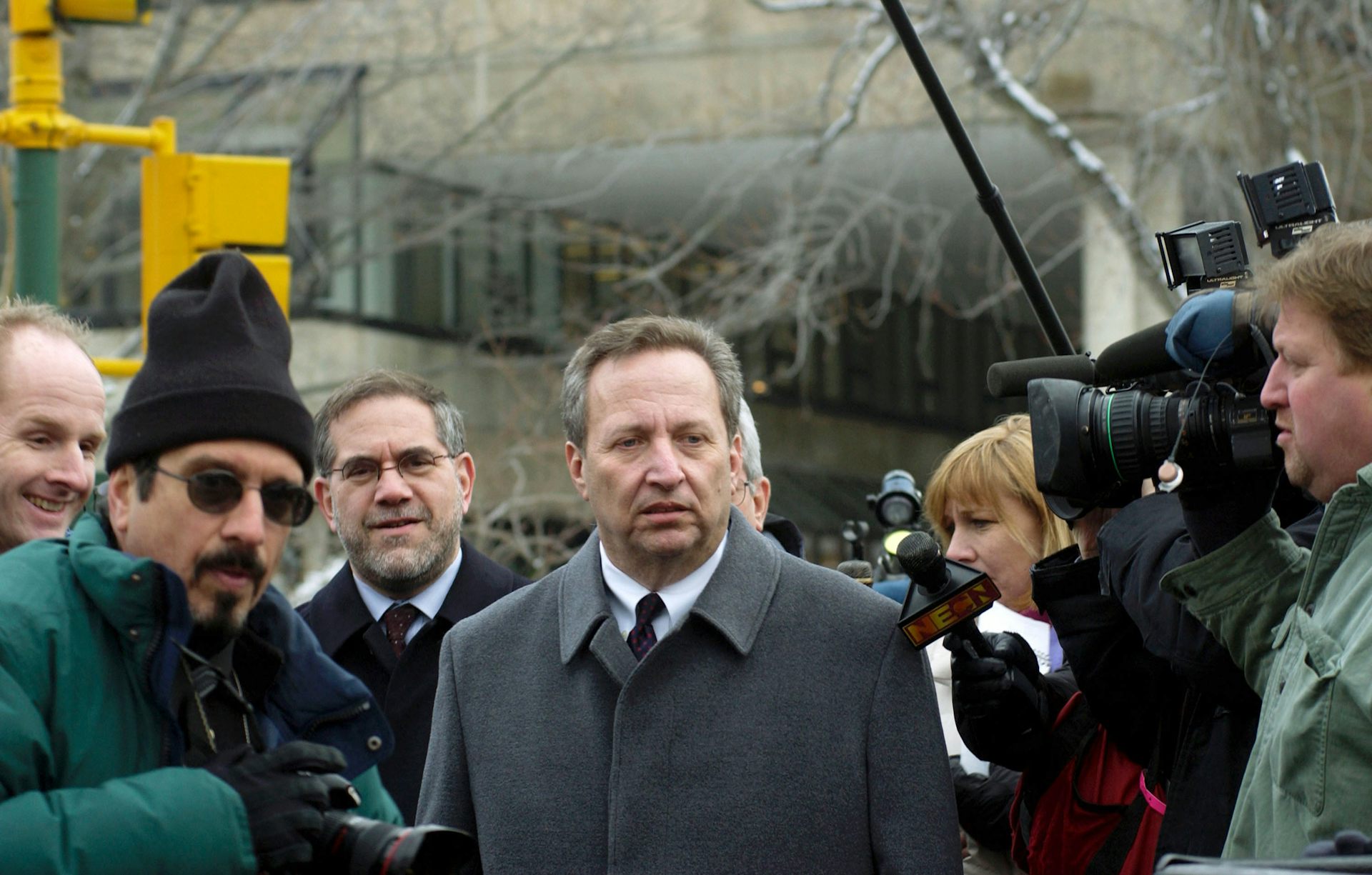Venezuela's elections are just a new way for Maduro to cling to power
President Nicolás Maduro has announced he will run for reelection, a sign that Venezuela's authoritarian regime now has an electoral strategy for beating the opposition.
Leer en español.
Nicolás Maduro, president of crisis-stricken Venezuela, will run for reelection in Venezuela in 2018, Vice President Tarick Al Aisammi announced in a Nov. 29 press conference.
Just a few months ago, it would have seemed unlikely that the Maduro regime would opt for elections as a way to hold onto power. After three years in office, Venezuela is in full political and economic meltdown, with hyperinflation expected to top 2,300 percent this year.
Facing a 20 percent approval rating, in October the government unilaterally canceled a presidential recall referendum called by the opposition. It also put off gubernatorial elections, originally scheduled for December 2016, for nine months.
But when they were finally held, on Oct. 15, Maduro’s Socialists saw surprising success. In an election widely denounced as fraudulent, three-quarters of states in Venezuela elected governors from the ruling party.
Now, according to analysis from the Political Studies Center at Andrés Bello Catholic University, where I am director, Maduro will once again make use of voter frustration and confusion to take on its opposition at the ballot box.
First up: the country’s Dec. 10 mayoral elections. If the Socialists win big there, I expect Maduro will call an early presidential election in the first half of 2018.
Winning by not losing
Despite the Maduro regime’s lack of popular support, I believe that ruling-party mayoral candidates could actually triumph in upcoming elections.
The regime has clearly been reprising the two tactics that worked for him back in October: suppressing turnout among opposition voters and using pork-barrel incentives to motivate his own base.
In other words, Maduro’s electoral strategy seems to be less about winning democratic legitimacy than about ensuring that his opponents lose it.
Abstention should be what most concerns Venezuela’s beleaguered opposition movement. Post-election analysis of October’s regional elections shows that abstention – in large part due to voter suppression and manipulation – played a major role in the Maduro regime’s big win.
The regime-controlled National Electoral Council used dirty tricks to confuse voters. It kept candidates who’d withdrawn from the governor’s race on the ballot and relocated voting centers in opposition-dominated areas into high-crime neighborhoods just hours before voting began.
The government also influenced voter opinion using disinformation. Spreading fake news about having purportedly reached agreements with opposition parties, it stoked doubt among the many Venezuelans who oppose all engagement with Maduro’s authoritarian regime.
This split the opposition in the October elections. While some Venezuelans still see democratic elections as the only way out of this crisis, many others accused opposition parties of complicity with the regime and refused to vote.
All the while, the government was persecuting popular opposition leaders, disqualifying them from running.
The race to 2018
Now, as the Dec. 10 municipal elections approach, Maduro is again undermining the opposition to ensure a Socialist victory.
He’s been doing his best to keep some opposition parties engaged in talks with the government, asserting that negotiations in the Dominican Republic are making progress. In fact, as most commentators agree, these mediated talks have long been fruitless.
But insisting on negotiations helps Maduro deepen the divide within this polarized, struggling opposition.
The government has also sought to dampen criticism by releasing a few political prisoners – typically not jailed dissident leaders but citizens who’ve been arrested for protesting. Simultaneously, it’s been cracking down ever harder on resistance.
All of this stirs up voter mistrust and confusion, making it less likely voters will head to the polls next week. It may also be stoking violence. On Nov. 29, a congressman was shot in his car.
Maduro is also catering to his own dwindling base. How does a president with record low approval still even have supporters to motivate? The answer is patronage.
In September 2017, Maduro government introduced a new identity document called the Carnet de la Patria, which promised card-holders benefits like food and medicine in exchange for loyalty to the regime. In a time of great scarcity, the offer of basic necessities was compelling.
Today, more than 12 million government employees and Venezuelan citizens – or about half the population – have the Carnet. Their gratitude helped Maduro’s Socialists attract over half a million more votes in October’s gubernatorial election than it had in the last legislative election, even though nearly 90 percent of Venezuelans say their country’s crisis has worsened in the past year.
Such voter inducement will surely help again in the upcoming mayoral elections. And when Maduro runs for president next year, Carnet beneficiaries will give him a substantial leg up.
Internal dissent
In other words, Maduro’s increasing turn toward “democratic” elections should not be understood to mean that this Socialist government enjoys the same wild support it did under Hugo Chávez.
The vast majority of Venezuelans want a change in government. Maduro also faces internal opposition within the Socialist Party. He may be Chávez’s chosen successor, but not everyone in government supports Maduro just because he’s heir to Chávez’s legacy.
This is why three of the four main opposition parties have decided to boycott municipal elections in December. Rather than run mayoral candidates in a fraudulent election, they say, they’re focusing on demanding fairer conditions for the 2018 presidential election.
There, they hope to capture voter anger and defeat the president fair and square.
They have their work cut out for them. Venezuelans demand new leadership, but that doesn’t mean they’ll trust anyone who opposes Maduro. To forge a future of freedom and democracy, Venezuela’s opposition must first regain the faith of the people.
Benigno Alarcón does nor receive any funding nor have any professional affiliations relevant to the subject of this article.
Read These Next
Cuba’s speedboat shootout recalls long history of exile groups engaged in covert ops aimed at regime
From the 1960s onward, dissident Cubans in exile have sought to undermine the government in Havana −…
Bad Bunny says reggaeton is Puerto Rican, but it was born in Panama
Emerging from a swirl of sonic influences, reggaeton began as Panamanian protest music long before Puerto…
Former Harvard president Summers’ soft landing after Epstein revelations is case study of economics’
Despite repeated calls for the university to revoke his tenure, the economist held onto his teaching…





